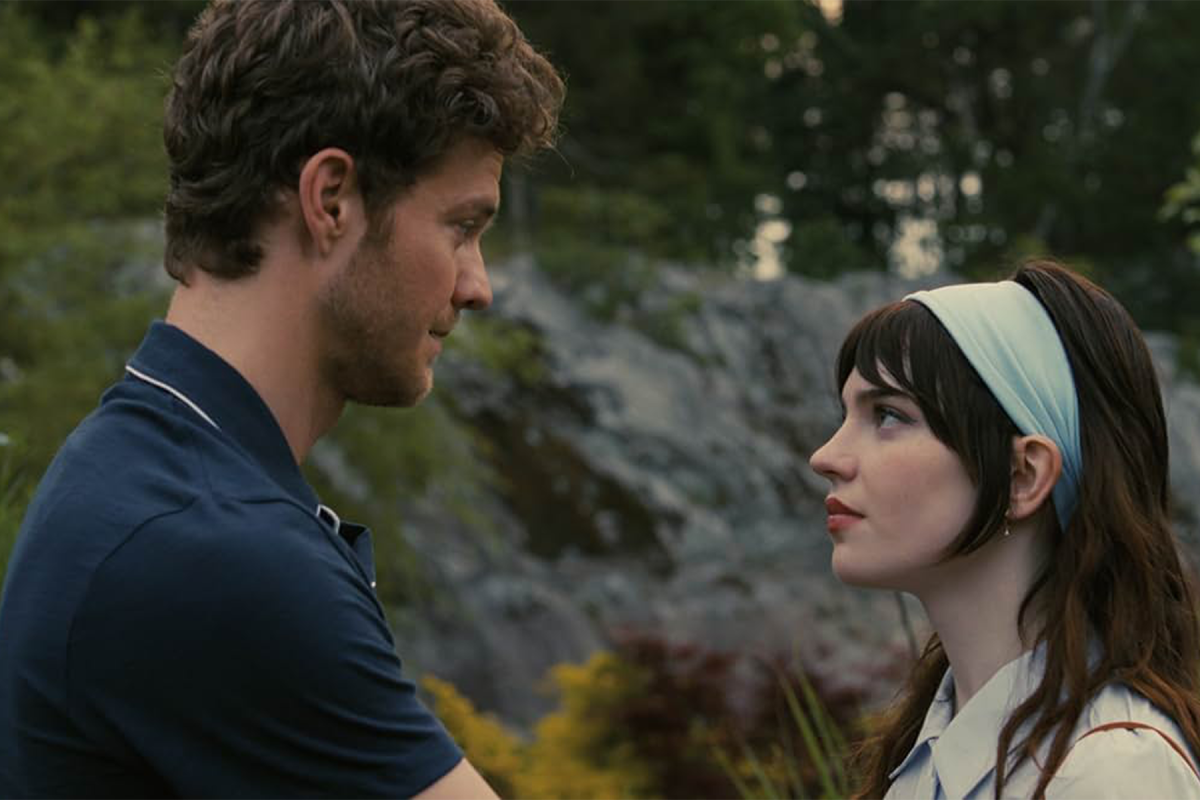Meet Josh (Jack Quaid). He’s your adorkable boy-next-door type who knocks over the fruit stand at the grocery store and makes sure to let you know that his friends do like hanging out with you. Sure, he’s clumsy and maybe a bit controlling, but that’s no issue for a girl like Iris (Sophie Thatcher). She’s a tad moody but is willing to do anything for the love of her life. Seems believable? Well, the audience learns pretty quickly that he’s actually a misanthropic incel, and she’s a sex robot. If that isn’t some kind of sick representation of the current dating world, I don’t know what is.
Iris’ purpose isn’t exactly as crude as it seems — she’s a “companion,” a perfectly legal robot made for dating with a completely manipulable personality from her voice to her intelligence and more. Unless the owner modifies their companion, the robots can’t lie, won’t show aggression and will never question their purpose. However, things go awry once a seemingly innocent trip in the woods with friends turns bloody.
While the film is primarily a thriller, “Companion” is surprisingly hilarious. The audience is in on the joke of Josh being a complete loser, and the film plays into it harder later in the storyline. There are some tongue-in-cheek lines where Josh exclaims that “life is hard for guys like me” and that women ruin his life, successfully making the audience crack up at his misogynistic cynicism that feels all too real for the types of men in the dating sphere.
It’s clear, however, that debut director Drew Hancock didn’t want to say anything extraordinary about artificial intelligence in society. Because of this, some of the logic feels rudimentary rather than compelling. The fact that the companion robots can’t lie is a detail that first feels like a “gotcha” moment, but reappears as exhaustive plot armor throughout the rest of the runtime to resolve various plot points. There’s also no deeper study into the ethics behind the robotic companions, nor is there any original statement about the emergence of AI in our lives. Instead of focusing on the danger AI will bring to humanity, the film highlights what Hancock believes to be the real threat — the people creating this technology, which in itself is an intriguing viewpoint. In fact, Hancock makes us root for the robots to win, as opposed to the people behind it all. Therefore, there’s much more of an emphasis on how human greed, loneliness and desire can lead to our demise, rather than technological determinism.
Despite the machine-like content, Thatcher and Quaid deliver the best performances in the film. They shine on screen as they showcase their versatility across genres of thriller, romance and comedy in this twisted tale of love and death. Lukas Gage, Megan Suri and Harvey Guillén’s supporting roles are less than stellar, with performances that just aren’t quite as believable compared to the talent of the leads. However, the lack of a solid ensemble is compensated for by the well-paced runtime of the film.
More than anything, “Companion” is an exciting hypothetical question for the audience as Josh and Iris’ story unravels, along with other twists and thrilling moments that make the story worth watching. Instead of worrying about the impending doom of AI, enjoy the chaos of “Companion,” where robots committing murder is completely acceptable for men with a “nice guys finish last” mentality.
Contact Amelia Knust at [email protected].
























































































































































